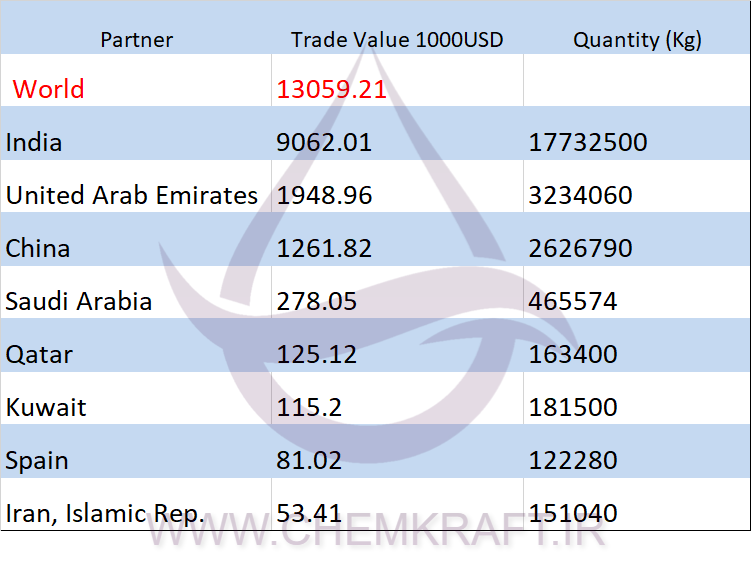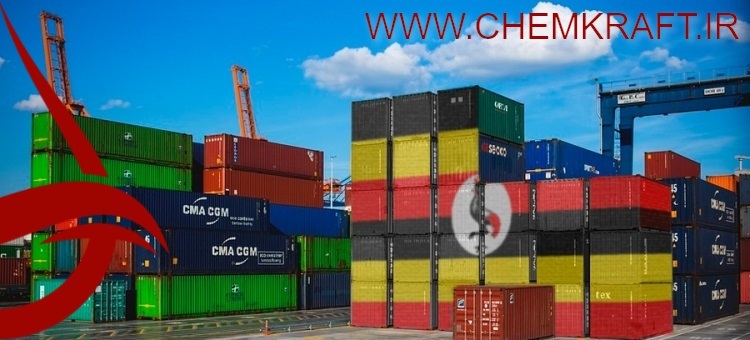Caustic Soda Imports in Uganda, Where Iran stands as a supplier
Caustic soda, also known as sodium hydroxide, is a chemical compound that plays a significant role in various industries in Uganda. The country heavily relies on imports of this substance to meet its domestic demand. This essay aims to explore the imports of caustic soda in Uganda, including the reasons behind the reliance on imports, the major import sources, and the impacts on the economy and industries.
Firstly, Uganda heavily relies on imports of caustic soda due to the limited domestic production capabilities. The country lacks the necessary infrastructure and technology to produce it in large quantities. This leads to a high dependence on foreign countries to fulfill the growing demand from various industries, such as textiles, paper manufacturing, and soap production. The importation of caustic soda becomes crucial to sustain these industries and maintain economic stability.

Neighbor Sources
Secondly, the major import sources for caustic soda in Uganda include neighboring countries like Kenya, Tanzania, and Rwanda. These countries have relatively better infrastructure and production capabilities, making them reliable suppliers of caustic soda to Uganda. The proximity of these sources also facilitates cost-effective transportation, reducing the burden on the overall import costs.
The importation of caustic soda in Uganda has significant impacts on the economy. Firstly, it contributes to the country’s trade deficit, as the cost of importing this chemical compound is higher than the revenue generated from its exports. This trade deficit puts pressure on the country’s foreign exchange reserves and affects the overall balance of trade. Additionally, the reliance on imports of caustic soda means that Uganda is spending a substantial amount of its foreign exchange on this essential chemical, limiting its ability to invest in other sectors or import other necessary goods.
Furthermore, the importation of caustic soda affects various industries in Uganda. The textile industry heavily depends on this chemical compound for the processing and dying of fabrics. The paper manufacturing industry uses it in the bleaching process, while the soap production sector needs it to saponify oils and fats. The reliance on imported caustic soda influences the cost of production for these industries, as they need to consider high import costs and potential price fluctuations. This may also impact the competitiveness of these industries in the global market, as they may struggle to offer competitive prices due to the expensive raw material.
Supply chain vulnerabilities
Moreover, the importation of caustic soda in Uganda raises concerns about supply chain vulnerabilities. Since the country is heavily dependent on imports, any disruption or delay in the supply chain can have severe consequences for industries that rely on this chemical compound. Events like port strikes, political unrest, or global supply chain disruptions might lead to shortages, causing production delays and potentially affecting the overall economy.
Conclusion
Uganda heavily relies on imports of caustic soda to meet domestic demand in various industries, such as textiles, paper manufacturing, and soap production. The limited domestic production capabilities and lack of infrastructure contribute to this heavy dependence. Neighboring countries like Kenya, Tanzania, and Rwanda serve as major import sources, facilitating cost-effective transportation. Importing caustic soda, however, leads to a trade deficit and limits the country’s ability to invest in other sectors. It also affects the industries that heavily depend on this chemical compound, both in terms of production costs and competitiveness. The importation of caustic soda also raises concerns about supply chain vulnerabilities, emphasizing the importance of diversifying sources and enhancing domestic production capabilities in Uganda.












